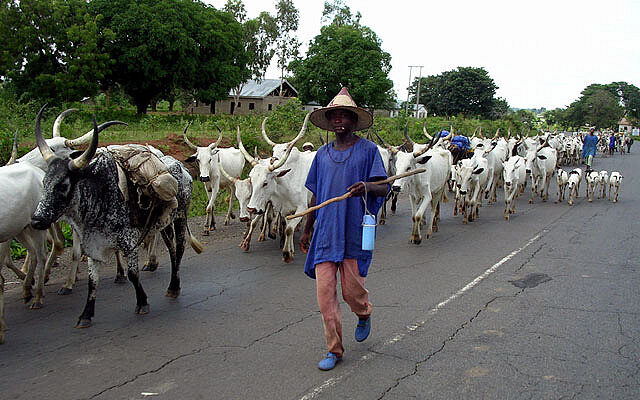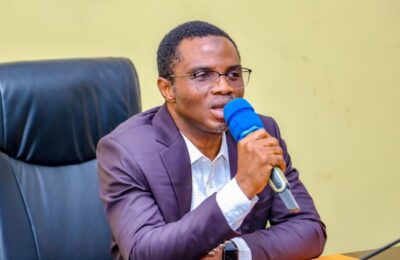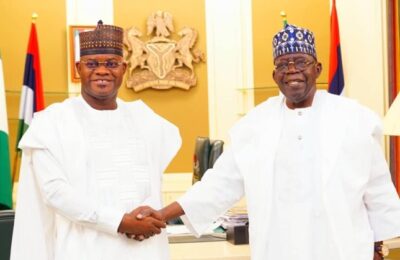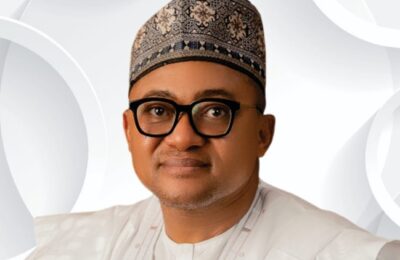Once upon a time in Nigeria, the hooves of Fulani cattle were welcomed like rainfall on dry soil. Communities waited patiently for the herders, not just for milk and meat, but for tales of the savannah and news from the far north. In Kogi, Benue, Taraba, Niger, and even down to Oyo, the Fulani man wasn’t just a visitor—he was family. Today, that story has soured. Fear now greets the sound of cowbells. Friendships have become suspicions. Roads once walked together are now soaked with blood.
Something broke. And what broke was not just peace—it was memory. We forgot the handshake that once bound us.
The tragic drift between the Fulani and their neighbors did not begin with guns. It began with silence. Silent forests that dried up. Silent leaders who said nothing. Silent prayers interrupted by cattle grazing on maize, yam, and cassava farms. And before long, suspicion turned into survival. Friends became strangers. Strangers became threats.
What happened to the Fulani we used to know?
They were once celebrated across Nigeria for their discipline, courtesy, and clean white babanriga. In the words of Sheikh Abubakar Gumi, “A true Fulani man fears dishonour more than death.” That honour system, built on the Pulaku code—modesty, patience, and dignity—is now a fading whisper behind the noise of bullets and machetes. “These are not our people,” many Fulani elders lament in Adamawa and Katsina. “Our people don’t kill. They herd.”
But just as Prophet TB Joshua once said, “When your neighbor’s pain no longer troubles you, your soul is sick,” so too has Nigeria grown spiritually sick—indifferent to its neighbor’s pain. The Fulani feel cornered, criminalized for their identity. Their neighbours feel betrayed, forced to dig graves for crops and kin.
Across Kogi State, we’ve heard the cries. In Olamaboro, an Igala farmer sobs, “They used to eat with us under the mango tree. Now we sleep with one eye open.” In Dekina, a Fulani boy whispers, “They say I’m a killer. But I only want to go to school.” Stories like these echo from Benue to Nasarawa, from Edo to Zamfara—telling one sad story: the fracture of our Nigerian family.
And like a calabash that cracks in water, our unity now floats in fragments.
While growing up in Olowa, Dekina, in Kogi State, the Fulani were not strangers to my family. They were part of our lives. I remember how they would come to our compound and my mother, with her generous hands, would cook hot meals for them—yam porridge, okra soup, pounded yam with bushmeat. Sometimes, these herders would gift her wild animals they hunted on their way—antelopes, rabbits, grasscutters. It was their own way of saying “thank you” without many words. Jokingly, we children would run after their cows, pretending to help them control the herd, laughing like brothers under the sun.
There was even a time when a young Igala boy went missing. The whole village searched. Days later, we found him not far off—dressed in Fulani attire, rearing cows like one of them. When his parents saw him, they didn’t scold. They laughed. “He has found work,” someone joked. His parents simply blessed him and said, “Be careful with the cows.” No offense. No fear. Just love. That was the Nigeria we knew.
But today, the story has changed. Instead of food and laughter, we now count bodies. Instead of sharing games, we share grief. The same hands that once stretched out in friendship now clutch cutlasses and trigger rifles. Where is the love?
In this new Nigeria, an old man is scared to fetch firewood because a cow might stray onto his land. A herder is hunted because he wears a cap associated with violence. Politicians have hijacked the pain, feeding off bloodshed to win elections. Traditional rulers have lost their authority. Youths, both Fulani and non-Fulani, now grow up hearing stories of betrayal, not brotherhood.
This is not the Fulani I knew. And this is not the Nigeria I want my daughter to inherit.
Historically, the Fulani were not just herders—they were bridge-builders. They moved with rhythm, not rage. From Sokoto to Enugu, from Katsina to Ilorin, they herded their cattle with grace and discipline, respecting landowners, engaging local chiefs, and operating under a code known as Pulaku—a deep-rooted ethic of dignity, patience, and self-control. This system, enforced by Fulani elders, kept their young men in check and protected their host communities from harm.
In return, Nigerian farmers welcomed them. The Fulani brought milk, beef, and stories from far lands. The farmers offered grains, water, and access to grazing. It was a barter of trust.
But things began to fall apart when the land stopped breathing.
Climate change crept in like a silent thief. The grasslands of the Sahel dried up. Rivers in northern Nigeria shrank. Cattle grew lean. The Fulani had no choice but to migrate southward in search of greener pastures. And as they did, they encountered growing populations, shrinking farmland, and leaders who had abandoned traditional conflict resolution structures but are experts in charging them fees before grazing.
There were no more town hall meetings under the iroko tree. The elders were now sidelined. Local governments ignored warnings. The police were reactive instead of proactive. Into that vacuum came chaos.
Some Fulani youths, stripped of guidance and consumed by poverty and marginalization, picked up arms. Others—criminals in Fulani skin—exploited the identity for evil. They formed syndicates, terrorized villages, and shattered the fragile peace that had once bound us together.
On the other side, angry farmers retaliated. Vigilantes emerged. Ethnic profiling followed. The media painted the entire Fulani race with one brush. Innocent herders were hunted like game. Many fled, some joined militias for protection, and the cycle of violence deepened.
But let the truth be told: not all Fulani are killers, and not all farmers are saints. If you pay a village chief for your cattle to feed, and the farmers weren’t notified, wont they pick offense? Do you think the fulani will also be happy, if you insult and send them away?
As Bishop David Oyedepo once warned, “When you allow bitterness to rule, it won’t just poison your enemy—it will destroy your soul.” Nigeria is slowly destroying herself, soul first.
We must pause.
We must remember that in every Fulani camp, there are mothers singing lullabies, children playing with stones, and men who just want to keep their cattle alive. In every farming community, there are youths trying to survive without running into herds, elders praying for rain, and women trying to harvest cassava before nightfall.
Our problem is not tribe—it is truth, or the lack of it. It is failed leadership. It is broken dialogue. It is criminality hiding in culture.
As Prophet Muhammad (SAW) said, “None of you truly believes until he loves for his brother what he loves for himself.” Nigeria has lost that love. But we can find it again—through justice, through truth, through courageous conversations.
We must empower traditional institutions again. Let the village heads, the Ardos (Fulani leaders), and the chiefs talk again. Let government invest in ranching and clearly define grazing paths. Let there be local truth commissions—panels where communities can tell their stories, expose the lies, and begin to forgive.
Let the church and mosque join hands—not just to pray, but to lead. Let the media tell balanced stories. Let schools teach unity, not division. Let poets write about brotherhood, not bullets.
As an old Igala proverb says, “The tree that forgets the soil that raised it will fall in the storm.” Nigeria is that tree. We are forgetting the soil—our history of unity, hospitality, and tolerance. And unless we return to our roots, the storm will not spare us.
Nigeria must rise—not by building higher walls, but by digging deeper wells of understanding.
The government cannot continue to act like a father who chooses which child to feed. Equity must return to our national table. Grazing must be structured, compensated, and regulated. Rural security must be community-owned and intelligence-led. And every citizen, Fulani or farmer, must have a voice in shaping peace.
But peace is not only the job of leaders.
It begins with us.
With the Igbo trader in Aba who chooses to listen before judging. With the Yoruba farmer in Oyo who gives water to a thirsty herder. With the Tiv woman in Makurdi who tells her son not every Fulani man is evil. With the Fulani elder in Lafia who warns his youth: “Our cows must not drink blood.”
This is a call not just to remember—but to rebuild. Not just to mourn—but to mend. Not just to talk peace—but to live it.
Because, in the end, when the cow strays, it does not mean the herder has failed—unless he refuses to bring it back. Nigeria’s Fulani problem is not beyond healing. But we must be bold enough to return to the values that held us together.
Love. Honour. Dialogue. Justice.
As Apostle Ayo Babalola once declared in a time of tribal unrest, “God does not anoint a tribe—He anoints a people who love one another.” If we, Nigerians of every tongue and region, can find our way back to that love, then maybe—just maybe—friends who became strangers can become family again.
And the land will rejoice.
– Inah Boniface Ocholi writes from Ayah – Igalamela/Odolu LGA, Kogi state.
08152094428 (SMS Only)




